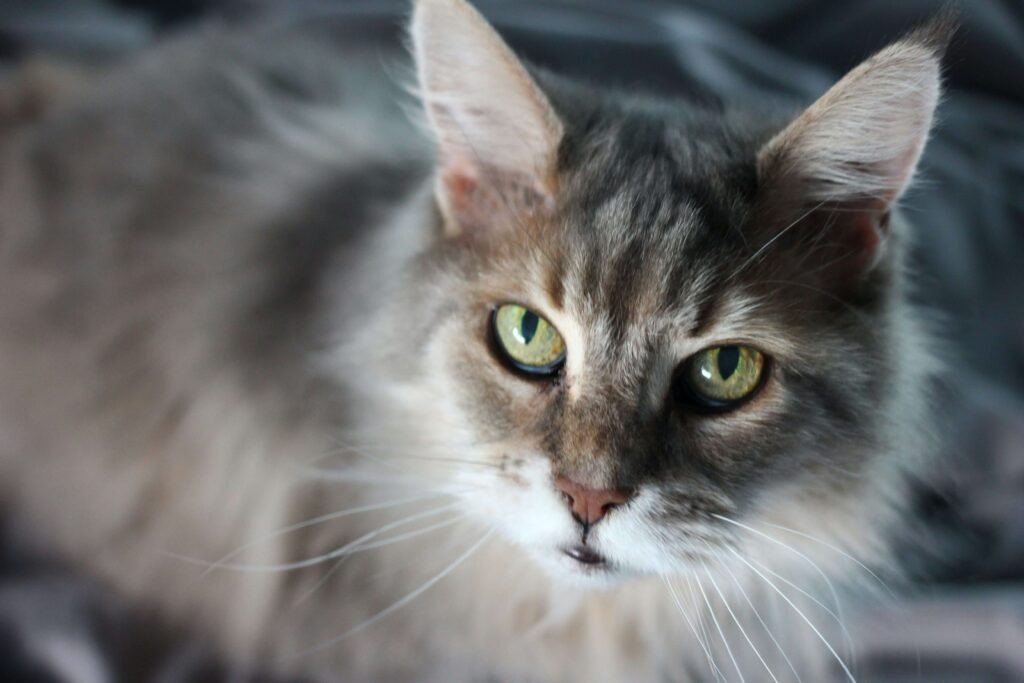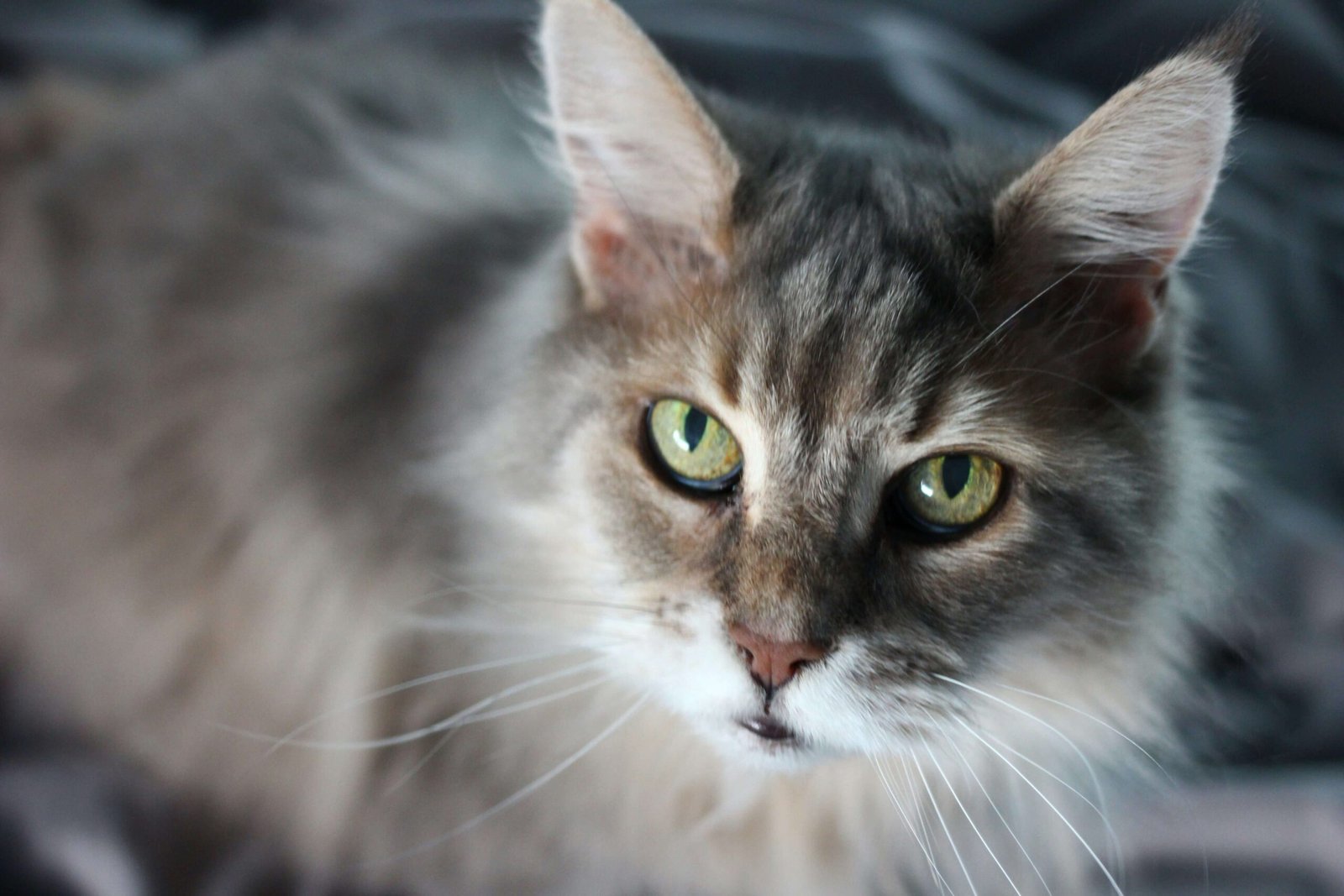Why Does My Cat Roll in the Dirt? Decoding This Quirky Behavior
If you’ve ever caught your cat rolling around in the dirt, you might have wondered what on earth they’re up to. While it may seem strange or even messy to us, this behavior is actually quite common among felines and serves several purposes. Whether it’s a way to cool off, mark their territory, or simply enjoy themselves, understanding why your cat rolls in the dirt can deepen your appreciation for their unique instincts.
In this blog post, we’ll explore the reasons behind this peculiar habit, offer tips for managing it, and help you determine if it’s something to be concerned about. By the end, you’ll have a clearer picture of what drives your cat’s dirt-rolling antics and how to respond appropriately.
Common Reasons Why Cats Roll in the Dirt
Cats roll in the dirt for a variety of reasons, ranging from instinctual behaviors to environmental factors. Here are some of the most common explanations:
Cooling Off
On hot days, rolling in cool dirt or grass can help regulate their body temperature and provide relief from the heat.Marking Territory
Cats have scent glands on their cheeks and sides, and rolling allows them to leave their scent on surfaces as a way of claiming ownership.Scratching an Itch
Dirt provides a rough texture that can help relieve itching caused by dry skin, fleas, or allergies.Enjoyment and Play
Some cats simply enjoy the sensation of rolling in dirt or grass, finding it entertaining and satisfying.Masking Their Scent
In the wild, rolling in dirt or other materials can help mask their natural scent, making it easier to sneak up on prey.
Understanding these motivations can help you interpret your cat’s behavior and ensure they’re healthy and comfortable.
How to Determine If Your Cat’s Dirt-Rolling Is Normal
While rolling in the dirt is usually harmless, there are times when it could indicate an underlying issue. Here’s how to assess whether your cat’s behavior is normal or if further action is needed:
Check for Skin Irritation
Look for signs of redness, bald patches, or excessive scratching, which could indicate allergies or parasites.Observe Frequency
If your cat suddenly starts rolling excessively or obsessively, it might signal discomfort or stress.Monitor Their Diet
Nutritional deficiencies can sometimes lead to unusual behaviors, so ensure their diet is balanced and complete.Inspect for Fleas or Ticks
Parasites like fleas can cause intense itching, prompting your cat to roll in dirt for relief.Evaluate Environmental Changes
Stressors such as moving, new pets, or loud noises can trigger changes in behavior, including increased dirt-rolling.
By paying attention to these factors, you can better understand whether your cat’s dirt-rolling is a harmless quirk or a sign of something more serious.
Check this guide 👉Why Cats Love to Lay Down: Best 7 Expert Tips!
Check this guide 👉Why Is My Cat Hissing at Me? Best 7 Behavior Tips!
Check this guide 👉Why Does My Cat Drool When Happy? Best 7 Expert Tips!

Behavioral Causes | Health-Related Causes |
|---|---|
Marking territory | Allergies or skin irritation |
Cooling off in hot weather | Flea or tick infestations |
Enjoying sensory stimulation | Nutritional deficiencies |
Masking their scent | Stress or anxiety |
Playing or self-soothing | Underlying medical conditions |
Tips to Manage Your Cat’s Dirt-Rolling Habit
If your cat’s dirt-rolling habit is causing concern or mess, there are ways to manage it effectively. Here are some practical tips to guide you:
Provide Alternatives
Offer soft blankets or mats indoors where your cat can roll instead of using dirt.Regular Grooming
Brush your cat frequently to remove loose fur and reduce the urge to scratch or roll.Treat Skin Issues
Consult your vet if you suspect allergies, fleas, or dry skin, and follow their recommended treatments.Create a Cool Space
Ensure your home has cool, shaded areas where your cat can relax during hot weather.Use Positive Reinforcement
Reward your cat with treats or praise when they engage in acceptable rolling behaviors.
With these strategies, you can redirect your cat’s behavior while keeping them happy and healthy.
Preventive Measures to Reduce Excessive Dirt-Rolling
Taking proactive steps can help minimize your cat’s tendency to roll in the dirt. Here are some preventive measures to consider:
Maintain a Flea-Free Environment
Use flea prevention products and keep your home clean to avoid infestations.Provide Mental Stimulation
Engage your cat with toys, puzzles, or interactive play to reduce boredom and stress.Keep Outdoor Areas Clean
Remove debris or muddy patches in your yard that might attract your cat to roll.Monitor Their Diet
Feed your cat high-quality food to ensure they’re getting all the nutrients they need.Create a Comfortable Indoor Space
Set up cozy spots indoors where your cat can lounge and feel secure without needing to go outside.
These preventive measures can help curb excessive dirt-rolling and promote a healthier, happier lifestyle for your cat.
Signs Your Cat Is Rolling in Dirt for Fun
Sometimes, cats roll in the dirt simply because they enjoy it. If your cat’s behavior seems playful rather than problematic, here are signs that their dirt-rolling is just for fun:
Relaxed Body Language
Their movements are fluid and unhurried, with no signs of distress or discomfort.Purring or Vocalizing
They may purr or make soft chirping sounds while rolling, indicating contentment.Engaging with Toys Nearby
If they’re playing with toys before or after rolling, it’s likely a form of entertainment.Repeating the Behavior Indoors
They might mimic dirt-rolling on soft surfaces like blankets or rugs inside the house.No Visible Skin Issues
Their coat appears healthy, with no redness, bald patches, or signs of irritation.
These signs suggest your cat is simply having fun, and there’s no need to worry about their dirt-rolling habit.
How to Keep Your Yard Cat-Friendly and Clean
If your cat loves rolling in the dirt outdoors, maintaining a clean and safe environment is essential. Here are some tips to make your yard more cat-friendly:
Remove Hazardous Plants
Ensure your yard is free of toxic plants that could harm your cat if ingested during rolling.Keep Grass Trimmed
Shorter grass reduces the risk of parasites like ticks hiding in tall blades.Avoid Chemicals
Use pet-safe fertilizers and avoid pesticides that could irritate your cat’s skin.Create Designated Areas
Set up a small patch of soft soil or sand where your cat can safely roll.Regularly Clean Outdoor Spaces
Sweep away debris, mud, or sharp objects that could cause injury or discomfort.
By creating a clean and inviting outdoor space, you can let your cat enjoy their natural instincts without compromising their safety.
When to Consult a Veterinarian About Dirt-Rolling
While dirt-rolling is usually harmless, certain behaviors or symptoms may warrant a trip to the vet. Here’s when you should seek professional advice:
Excessive Licking or Biting
If your cat is constantly grooming themselves after rolling, it could indicate skin irritation or parasites.Unusual Odors
A strong or unpleasant smell from their fur might suggest an infection or exposure to harmful substances.Changes in Appetite or Energy Levels
A sudden decrease in appetite or lethargy alongside dirt-rolling could signal an underlying health issue.Visible Wounds or Infections
Check for cuts, sores, or swelling that might have occurred during their outdoor adventures.Behavioral Changes
If your cat becomes unusually aggressive, withdrawn, or anxious, it could be linked to discomfort or stress.
Consulting a veterinarian can help rule out any serious conditions and ensure your cat remains in good health.
Frequently Asked Questions About Cats Rolling in the Dirt
Is it normal for cats to roll in the dirt?
Yes, it’s a common behavior driven by instinct, comfort, or environmental factors.
Should I stop my cat from rolling in the dirt?
Only if it’s excessive or harmful; otherwise, it’s generally harmless and natural.
Can rolling in the dirt harm my cat?
Not directly, but it could expose them to parasites or irritants if done frequently outdoors.
How can I tell if my cat is rolling due to fleas?
Look for excessive scratching, biting, or visible signs of fleas in their fur.
What should I do if my cat rolls in dirt and gets dirty?
Gently clean them with a damp cloth or bathe them if necessary, avoiding harsh chemicals.
Final Thoughts: Embracing Your Cat’s Natural Instincts
Rolling in the dirt is just one of the many fascinating behaviors that make cats such unique and intriguing companions. While it might seem odd to us, this habit often stems from their instincts, curiosity, or need for comfort. By understanding the reasons behind this behavior and taking steps to manage it, you can ensure your cat stays happy, healthy, and well-adjusted. Whether they’re marking their territory, cooling off, or simply enjoying the sensation, your cat’s dirt-rolling antics are a reminder of their wild heritage and playful spirit. So embrace their quirks, provide a safe environment, and cherish the joy they bring into your life.
Canned Pumpkin for Cat Diarrhea: Best 7 Expert Tips! Natural remedy to firm stools, soothe upset bellies, and support gut health safely.
Can a Cat Give You Scabies? Best 7 Expert Tips! Discover the truth about feline mites, human skin risks, and how to protect yourself—without panic.
Cat Flea vs Human Flea: Best 7 Expert Tips! Discover the truth about bites, species, and how to eliminate infestations for good.
Weird Cat Behaviors: Best 7 Expert Tips! Discover why cats do strange things—and how to understand, not punish, their instincts for a happier home.





